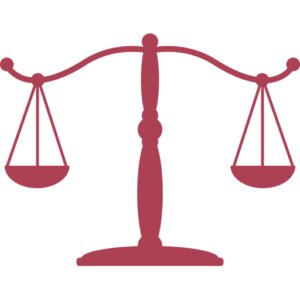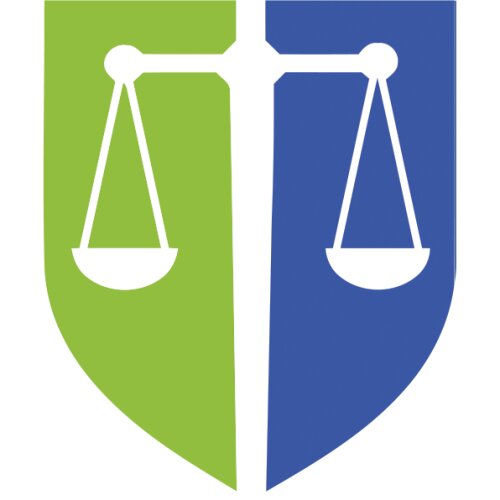Best Housing, Construction & Development Lawyers in Netherlands
Share your needs with us, get contacted by law firms.
Free. Takes 2 min.
Free Guide to Hiring a Real Estate Lawyer
Or refine your search by selecting a city:
List of the best lawyers in Netherlands
About Housing, Construction & Development Law in Netherlands
The field of Housing, Construction, and Development law in the Netherlands encompasses a wide range of legal issues related to residential and commercial properties, land use, environmental regulations, and construction processes. In the Netherlands, these laws are designed to ensure that housing is safe, sustainable, and suited to the needs of its inhabitants while also considering environmental protections and historical preservation. The legal framework governing this area includes national legislation as well as European Union regulations and directives, which must be adhered to so that developments are compliant with both local and international standards.
Why You May Need a Lawyer
Individuals and businesses may seek legal advice in this field for several reasons. Common situations where legal assistance is required include resolving disputes between tenants and landlords, navigating zoning laws and permit acquisitions, addressing construction defects, handling real estate transactions, and ensuring compliance with planning and environmental regulations. Lawyers specializing in this area can also assist in negotiation and drafting of contracts for construction projects and provide representation in court or arbitration proceedings, if necessary.
Local Laws Overview
The legal landscape in the Netherlands concerning Housing, Construction, and Development is heavily regulated. Key aspects include the Dutch Civil Code governing rental agreements, the Building Decree 2012 which sets technical construction standards, the Spatial Planning Act for land use policies, and the Environmental Management Act which focuses on sustainable development and environmental impact. Additionally, the Housing Act regulates social housing development, and EU directives shape laws regarding building energy efficiency. Understanding these can be essential for developers, landlords, tenants, and homeowners alike.
Frequently Asked Questions
What is the requirement for obtaining a building permit in the Netherlands?
Building permits are generally required for new structures, significant renovations, or changes to the use of a property. These permits are issued by local municipalities and it is crucial to comply with zoning plans, building codes, and environmental regulations.
Can I challenge a rent increase in social housing?
Yes, tenants can contest a rent increase before the Rent Tribunal (Huurcommissie) if they believe it to be unfair or incorrect. The tribunal evaluates whether the increment adheres to government regulation limits.
What are the tenant's rights if a property is sold?
Tenants in the Netherlands retain their rights even if a property changes ownership. This means that existing leasing contracts are still valid and the new owner must honor them.
What should I do if I experience a construction defect?
Firstly, document the defect and bring it to the contractor's attention to resolve the issue amicably. If unresolved, seek legal advice to understand potential claims under warranty or defect liability periods.
What is the difference between social housing and private rental housing?
Social housing is typically subsidized and subject to income limits, offering lower rents, whereas private rental housing does not have these restrictions and can be subject to market pricing influences.
How are zoning laws enforced in the Netherlands?
Local municipalities enforce zoning laws according to the Spatial Planning Act. Violations can result in fines or forced compliance with zoning requirements through administrative orders.
What environmental considerations are involved in Dutch construction projects?
Projects must comply with the Environmental Management Act, which considers aspects like emissions, waste management, water and soil protection, and energy efficiency to promote sustainable development.
Can a landlord evict a tenant without notice?
Landlords must follow specific legal procedures to evict a tenant, typically including serving notice and securing a court order when contested, ensuring protection against unlawful eviction.
Are there any incentives for green building practices?
Yes, the government provides various incentives for sustainable construction practices, such as tax benefits for energy-efficient buildings and subsidies for using environmentally friendly materials.
What should be included in a construction contract?
A comprehensive construction contract should include project scope, timelines, payment terms, responsibility allocation, change procedures, and mechanisms for dispute resolution.
Additional Resources
For more information, individuals can turn to several resources such as the Legal Aid Board (Raad voor Rechtsbijstand) for legal aid services, the Dutch Bar Association (Nederlandse Orde van Advocaten) for finding qualified lawyers, and local municipalities for zoning and building permit guidance. Moreover, organizations like the Huurcommissie offer specific assistance on rental issues.
Next Steps
If you require legal assistance in Housing, Construction, or Development in the Netherlands, start by identifying your specific needs and gathering relevant documents related to your case. Then, seek referrals for qualified legal professionals in this field or consult the Dutch Bar Association for available options. It is advisable to schedule consultations with several lawyers to determine who best fits your needs and to understand the costs involved. Engaging a lawyer early can aid in efficiently navigating legal complexities and safeguarding your rights.
Lawzana helps you find the best lawyers and law firms in Netherlands through a curated and pre-screened list of qualified legal professionals. Our platform offers rankings and detailed profiles of attorneys and law firms, allowing you to compare based on practice areas, including Housing, Construction & Development, experience, and client feedback.
Each profile includes a description of the firm's areas of practice, client reviews, team members and partners, year of establishment, spoken languages, office locations, contact information, social media presence, and any published articles or resources. Most firms on our platform speak English and are experienced in both local and international legal matters.
Get a quote from top-rated law firms in Netherlands — quickly, securely, and without unnecessary hassle.
Disclaimer:
The information provided on this page is for general informational purposes only and does not constitute legal advice. While we strive to ensure the accuracy and relevance of the content, legal information may change over time, and interpretations of the law can vary. You should always consult with a qualified legal professional for advice specific to your situation.
We disclaim all liability for actions taken or not taken based on the content of this page. If you believe any information is incorrect or outdated, please contact us, and we will review and update it where appropriate.
Browse housing, construction & development law firms by city in Netherlands
Refine your search by selecting a city.
















